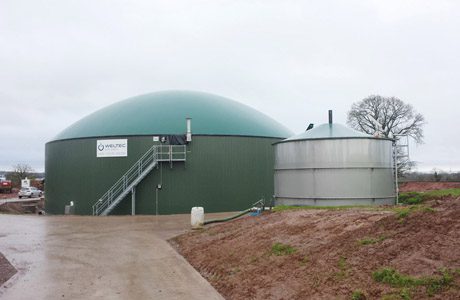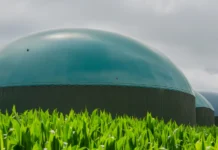
FOLLOWING DECC’s late July announcement of a consultation period on proposed changes to the feed-In tariff accreditation, it seems it will become all the more essential to speed the realisation of projects currently under development, according to German biogas biogas plant manufacturer Weltec Biopower.
DECC’s consultation runs up to the 19th August, with an announcement expected soon afterwards. For the biogas industry this is likely to mean the abolition of pre-accreditation and a lower feed-in tariff (FiT) during the development phase of anaerobic digestion projects up to 5 MW capacity. To date, pre-accreditation has helped secure a feed-in tariff rate and positive investment climate: Operators had security of promised feed-in tariffs when their plant went live within twelve months from the pre-accreditation, so this year could be used for the final engineering and the construction.
With the announced changes, the fast realization of projects currently under development becomes more critical. Only when projects are implemented quickly can you then calculate the quarterly digressions of the feed-in tariff.
Weltec Biopower presents itself as offering competitive advantage under these more exacting conditions. Recent projects it has undertaken include the 500kw agricultural biogas plant recently built near Cullompton in Devon (see image, above). “The experienced team of engineers and biologists constructed and commissioned the plant fast, on time and within budget, to a tight deadline,” according to a press release from the firm. “The construction team arrived on site in August 2014, and a successful G59 test was achieved in December 2014. The flexible modular design of the stainless steel tanks as well as container solutions for the CHP, control unit and pump block were the key factors for assembly to commissioning after only a few months.”
The termination of pre-accreditation will have a “devastating” effect on investors and have potentially “fatal” consequences for the achievement of climate change goals, said Jens Albartus, md of Weltec Biopower (UK) Ltd. According to Albartus, the complicating factor is the imminence of the changes – likely to come into effect in September, an extremely short time frame. The decision to undertake a further revision of the feed-in tariffs this year is very counterproductive, he said.
“The feed-in tariff is a success story and such changes will be a massive risk,” he said.







